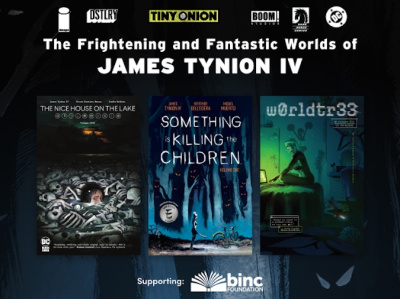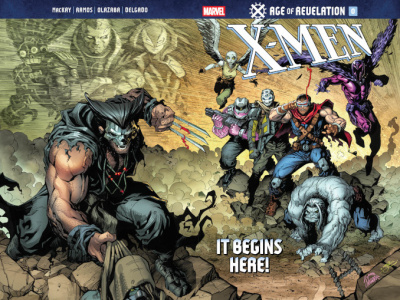
We list here our picks for the Top 10 Comics Business Events of 2009, based on our assessments of their long term impacts.
1. Disney buys Marvel
The transaction closed at the end of December, so now it’s official—the Mouse House owns the House of Ideas. This was the most dramatic transaction in a long term trend, the merger of
2. Warners forms DC Entertainment
Shortly after the Marvel announcement, Warner Bros. announced that it was forming DC Entertainment and appointing a
3. Returns hammer graphic novel publishers
With bookstore sales dropping and Borders Group operating under a heavy debt load in the midst of a global recession, the stage was set for bookstores to cut inventories on graphic novels, both American titles and manga, and cut inventory they did. Major store closings by Waldenbooks and Blockbuster added to the flow. Returns coupled with smaller orders on new products meant tight cash flow for graphic novel publishers, especially small ones with heavy exposure to the bookstore market.
4. Digital comics take off
ComiXology, Panelfly, and Genus joined iVerse and UClick as platforms for iPhone comic apps, with some publishers, including IDW and Dark Horse, also releasing their own apps. IDW announced that it had sold as many digital copies of its Star Trek Countdown series as it did physical copies, showing the size of the opportunity for this new medium.
5. Watchmen sets a new Bar
Sales on the Watchmen graphic novel, demonstrating an unprecedented linkage to the release of the movie, hit numbers previously unheard of in the graphic novel business, with over one million copies in print around the release of the movie.
6. Kodansha enters
After ending its relationships with Tokyopop and Dark Horse, Kodansha entered the
7. Diamond raises product thresholds
Seeking to cut costs in the wake of the global recession, Diamond Comic Distributors raised the minimum level at which it would cut a purchase order substantially early in 2009, with smaller titles losing easy access to the market as a result. Diamond Previews cut its page count and some publishers changed their release plans or sought alternate distribution channels to comic stores or consumers.
8. Copyright expirations bedevil Big Two
The most popular comic characters published (and exploited in film, TV, and videogames) by the Big Two U.S. comic companies were created decades ago, and with copyrights expiring, the heirs of their creators are looking to cash in. Although Warners won a round in the ongoing litigation with the Seigel heirs (see “Warners, DC, Win Superman Suit”), they lost another (see “Siegel Heirs Win Another Round”). Meanwhile Marvel got in on the action when the heirs of Jack Kirby filed copyright termination notices related to a number of major Marvel characters in 2009 (see “Kirby Heirs Seek Copyrights”).
9. Guilty plea for possession of comics
Christopher Handley pleaded guilty to possession of manga depicting underage characters having sex, to our knowledge the first time that anyone’s been convicted of a crime for possessing comics in the U.S. His sentencing is set for January (see “Handley Sentencing Set for January”).
10. Twilight graphic novels
It’s rare that you can state with certainty when a title is announced that it will end up on the top of the bookstore graphic novel bestseller charts, but the Twilight graphic novels announced by Hachette house Yen Press last summer certainly fit that bill. With sales of Twilight novels one factor in a tougher market for shojo manga, bringing the property into the fold of graphic novels is a big plus for the medium.







